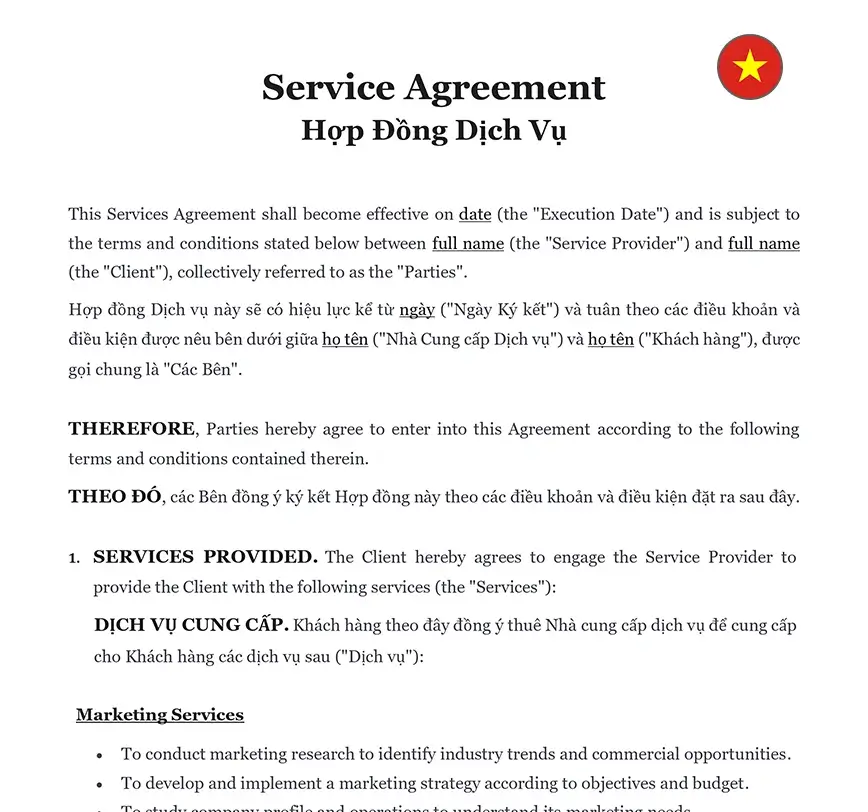Importance of Formalizing Client Services
Formalizing client services is crucial for maintaining professional and clear relationships with your clients. By putting a formal agreement in place, you can avoid potential pitfalls and misunderstandings.
Establish Clear Expectations: Formalizing client services sets clear expectations and responsibilities between your business and your clients.
Prevent Misunderstandings and Disputes: Without a formal agreement, misunderstandings and disputes can arise, potentially damaging client relationships and leading to legal issues.
Set Terms and Conditions: A well-drafted agreement outlines the terms and conditions of the services provided, ensuring both parties understand their obligations.
Define Scope of Services: The agreement covers the scope of services, providing a detailed description of the tasks, deliverables, and timelines.
Specify Payment Terms: It includes payment terms, detailing the schedule, methods, and conditions for payment.
Outline Timelines: Clear timelines are set, ensuring both parties know the start and end dates, as well as any milestones or deadlines.
Ensure Confidentiality: The agreement addresses confidentiality, protecting sensitive information shared during the course of the service.
Enhance Trust and Cooperation: By creating a clear framework, the agreement enhances trust and cooperation between your business and your clients.
Service Agreement: The Backbone of Client Services
A Service Agreement is the cornerstone of formalizing client services. This legally binding document specifies the nature of the services provided, the responsibilities of each party, and the financial arrangements involved. At Themis Partner, we recognize the importance of having a solid Service Agreement and offer expertly crafted templates that comply with Vietnamese law. Our Service Agreements are designed to be comprehensive yet flexible, allowing you to customize them to suit your specific needs while ensuring all legal requirements are met.
ℹ️ Ensure confidentiality with our Non-Disclosure Agreement (NDA) template, which is ideal for protecting sensitive information shared during the course of your client services.
Key Components of a Service Agreement
To effectively formalize client services, your Service Agreement should include the following key components:
| ➤ Scope of Services: This section provides a detailed description of the services to be provided, outlining specific tasks, deliverables, and timelines. By defining the scope clearly, both parties have a mutual understanding of what is expected, reducing the risk of scope creep and ensuring the project stays on track. |
| ➤ Payment Terms: This section details the payment schedule, methods, and conditions. It should specify the total cost, payment milestones, due dates, and acceptable payment methods (e.g., bank transfer, cash). Clear payment terms help avoid disputes over financial matters and ensure timely compensation for services rendered. |
| ➤ Duration: The duration clause sets out the start and end dates of the agreement, including any provisions for renewal or extension. This helps both parties plan and manage their commitments effectively. It can also outline conditions under which the contract may be extended or renewed. |
| ➤ Responsibilities: This clause outlines the specific responsibilities and obligations of both the service provider and the client. It ensures that each party understands their role in the agreement, including any support or resources the client must provide for the service to be completed successfully. |
| ➤ Termination Clause: Conditions under which the agreement can be terminated and the notice period required are detailed here. This section protects both parties by providing clear guidelines for ending the contract if necessary, including any penalties or obligations upon termination. |
| ➤ Dispute Resolution: Methods for resolving disputes, such as mediation or arbitration, are outlined in this section. By agreeing on a dispute resolution process in advance, both parties can handle conflicts more efficiently and avoid costly litigation. |
| ➤ Confidentiality: Provisions for protecting sensitive information shared during the course of the service are detailed here. This ensures that both parties commit to maintaining confidentiality, safeguarding proprietary and confidential information from unauthorized disclosure. |
| ➤ Compliance: Assurance that the services comply with local laws and regulations, such as those found on the Vietnam Government Portal, is included. This clause helps ensure that the agreement adheres to all applicable legal standards, protecting both parties from legal repercussions. |











